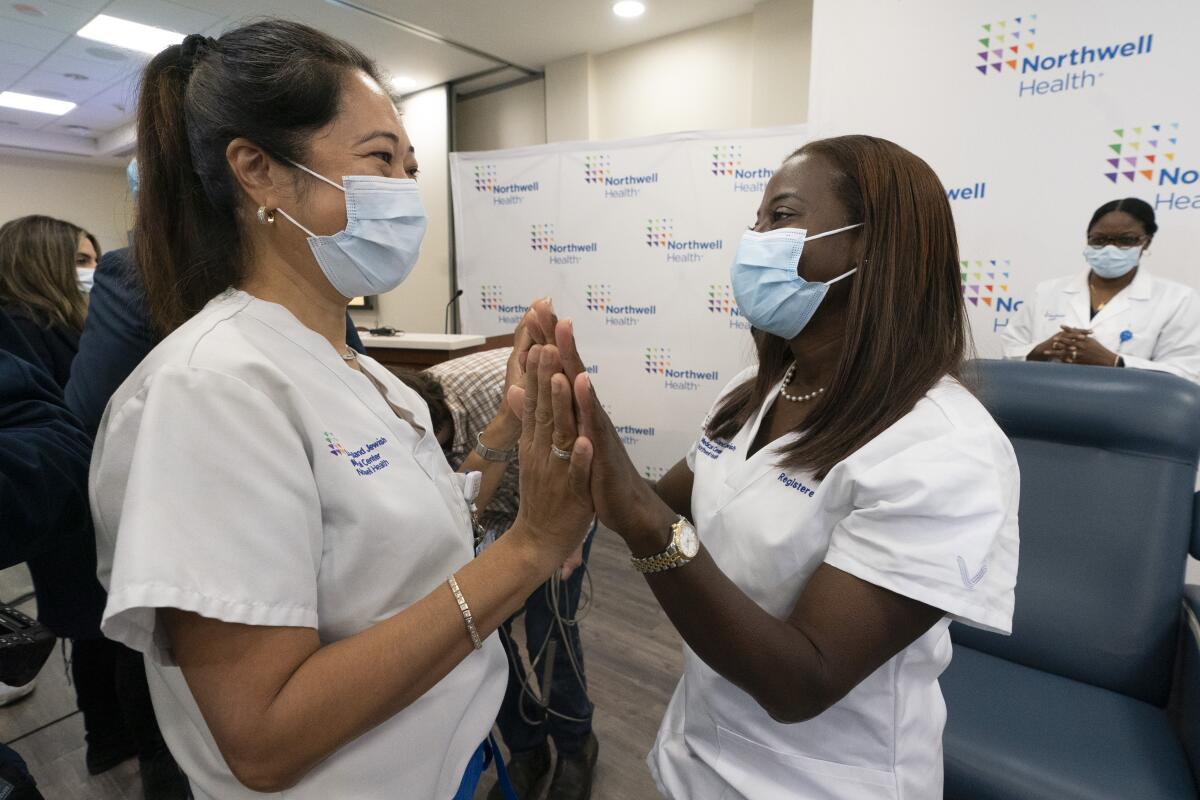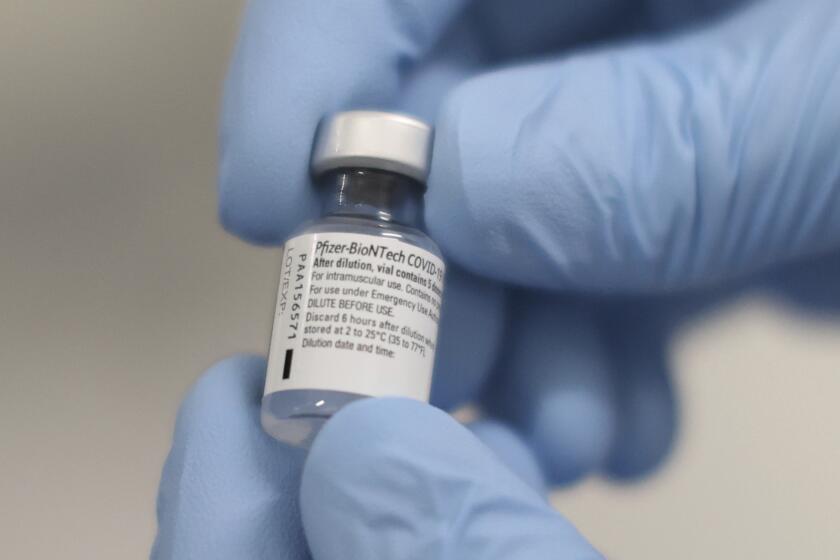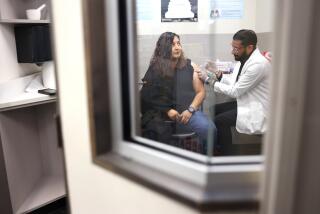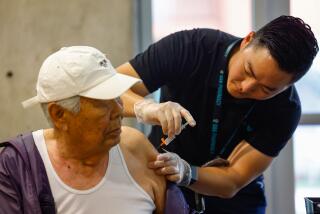When can I get the COVID-19 vaccine?

The vaccine is here.
After the long, grim slog of 2020, seeing healthcare workers start to receive the vaccine feels like witnessing a miracle. A second vaccine has now been authorized for emergency use, paving the way for a faster rollout to those most at risk. Though we have some dark days ahead of us, there’s finally a light at the end of the tunnel.
The question on everyone’s mind now: When can I get it?
There is no specific timeline yet, as much as we’d all like to circle a precise date on the calendar. Paula Cannon, a virologist and professor of molecular microbiology and immunology at the Keck School of Medicine at USC, predicts we’ll all be able to make up for our socially distanced holidays in a matter of months: “Come Easter, you can have two turkeys,” she said.
For now, here’s what we do know about who will have priority and what the general timeline is for distribution.
L.A. County health officials are following Centers for Disease Control and Prevention guidance and planning a three-phase rollout.
- First up: Healthcare workers and people who live and work in nursing homes and other assisted living facilities. The highest-priority people within that group — front-line medical workers with direct exposure to the coronavirus — began receiving their first doses in mid-December. California expects to give the first dose of the vaccine to all healthcare workers and nursing home residents and staff by the end of the month. The CDC says 20 million people are projected to receive the vaccine in the U.S. before the new year.
- The second phase will be certain essential workers and people 75 and older. Officials are still working out exactly who qualifies as an essential worker in this tier, but a federal advisory panel has indicated priority should go to firefighters and police, teachers and school staff, people who work in food and agriculture and manufacturing, U.S. Postal Service employees, and grocery store workers.
- The third phase will be other high-risk groups, including people 65 to 74 and people with chronic health conditions. The same advisory committee said this is when the rest of the essential workers, including employees in food service, media, utilities, and legal and financial jobs, should be vaccinated.
The general public is expected to get access to the vaccine by spring or summer. That means if you are in one of the three higher-priority groups, you may be vaccinated before then.
The CDC is projecting 30 million more people will be vaccinated in January and 50 million more in February, which will mean just under one-third of the U.S. population will have received it by the time we get to March. We need about 70% of the population immunized before we can hope to achieve herd immunity from the virus.
To read more questions and answers about the coronavirus vaccine, read our FAQ.
COVID-19 vaccines are now being administered to healthcare workers in the U.S. What are your questions about the timeline, the safety or the science?








